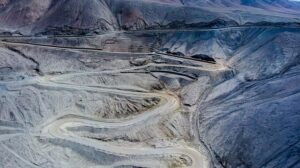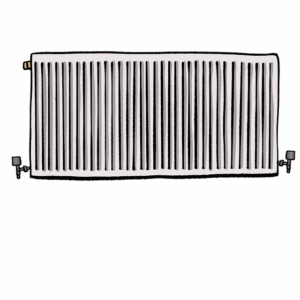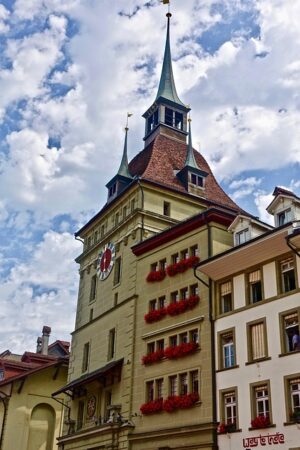Industrial unit heaters are vital for maintaining temperatures in large spaces across various sectors, with robust construction offering efficient solutions tailored to specific needs like gas or electric power. Long-term reliability hinges on component quality, suitable design, installation, maintenance, and matching BTU ratings. Materials like stainless steel and advanced heating technologies ensure durability and efficiency. Regular cleaning, filter changes, inspections, and adjustments are crucial for optimal performance and longevity in commercial environments like manufacturing facilities and warehouses.
“Industrial unit heaters play a vital role in maintaining operations during cold climates, with heavy-duty models ensuring consistent performance across various applications. This article delves into the world of these robust heating solutions, exploring their critical functions and diverse uses. We analyze the key factors influencing the long-term reliability of such heaters, highlighting design features promoting durability. Furthermore, it provides essential maintenance strategies to maximize their lifespan, offering a comprehensive guide for optimal industrial unit heater performance.”
- Understanding Industrial Unit Heaters: Their Role and Applications
- Factors Affecting Long-Term Reliability of Heavy-Duty Heaters
- Designing for Durability: Key Features and Technologies
- Maintenance Strategies to Ensure Optimal Performance and Lifespan
Understanding Industrial Unit Heaters: Their Role and Applications
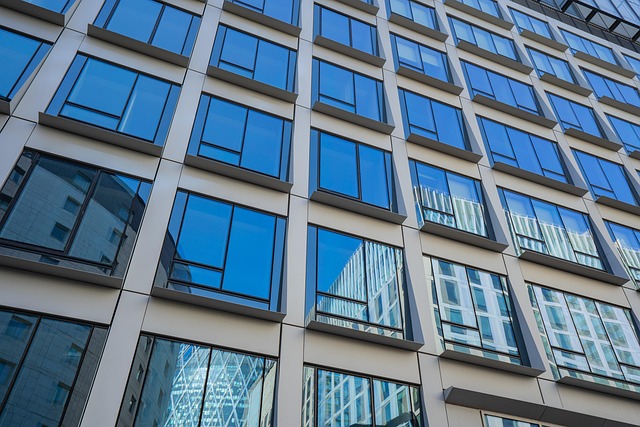
Industrial unit heaters play a pivotal role in maintaining optimal temperatures across various industrial settings. These specialized devices are designed to efficiently heat large spaces, making them indispensable for warehouse heating and manufacturing facilities alike. With their robust construction, they can withstand the demands of heavy duty operations, ensuring consistent performance over extended periods.
Whether powered by gas or electricity, unit heaters offer versatile solutions. Gas fired heaters, for instance, provide quick response times and are ideal for outdoor or areas with ample ventilation. Electric unit heaters, on the other hand, boast energy efficiency and quiet operation, making them suitable for indoor commercial heating applications. Some models feature suspended heaters or forced air heating systems, enhancing heat distribution and enabling precise control of BTU ratings to cater to diverse industrial requirements.
Factors Affecting Long-Term Reliability of Heavy-Duty Heaters

The long-term reliability of heavy-duty industrial unit heaters is influenced by several key factors. One of the primary considerations is the quality and design of the heater’s components, especially in harsh industrial environments. Heaters designed for industrial applications should incorporate robust materials and construction methods to withstand high temperatures, frequent use, and exposure to various industrial fluids or gases. For instance, in manufacturing facilities or warehouses with high ceiling heights, suspended heaters or forced air heating systems might be more suitable due to their ability to distribute heat evenly throughout the space.
Another critical aspect is proper installation and maintenance. Inadequate installation can lead to inefficient heating, premature wear, and even safety hazards. Regular maintenance checks, including cleaning, inspection, and replacement of worn-out parts, are essential to ensure optimal performance and longevity. Electric unit heaters, gas fired heaters, and suspended heaters all have their BTU ratings and energy efficiency considerations, which should be carefully matched to the specific heating needs of industrial spaces. Commercial heating systems in heavy duty construction settings require careful navigation of these factors to ensure they meet safety standards while providing reliable and cost-effective warehouse heating solutions.
Designing for Durability: Key Features and Technologies

When designing heavy-duty industrial unit heaters for long-term reliability, several key features and technologies stand out. First, robust materials like stainless steel and high-grade alloys are essential for withstanding harsh conditions in manufacturing facilities and warehouses. These materials prevent corrosion and ensure heavy-duty construction that can last for years.
Additionally, advanced heating technologies such as gas fired heaters, electric unit heaters, and suspended heaters offer superior performance and efficiency. Features like forced air heating, high BTU ratings, and adjustable temperature controls cater to the diverse needs of various industrial applications. The ability to precisely control heat output not only optimizes energy usage but also ensures safe and comfortable working environments in both indoor and outdoor commercial heating scenarios.
Maintenance Strategies to Ensure Optimal Performance and Lifespan
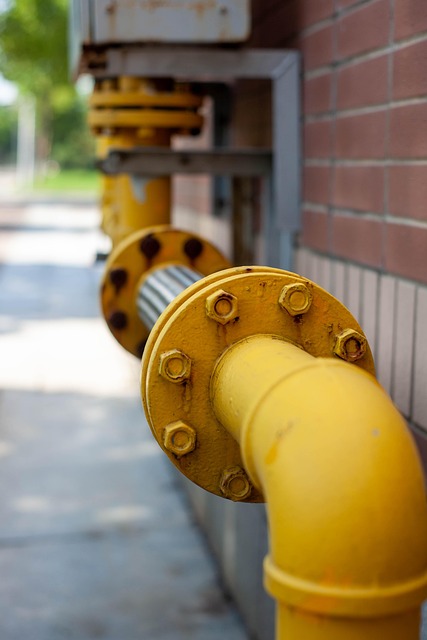
Maintaining heavy-duty industrial unit heaters is key to ensuring their optimal performance and extending their lifespan in demanding commercial heating environments like manufacturing facilities and warehouses. Regular cleaning and filter changes are crucial, especially for gas fired heaters, to prevent buildup of soot and debris that can impact efficiency and BTU ratings. Forced air heating systems should be inspected for any blockages or damage to ensure proper airflow.
Additionally, suspension heaters require periodic adjustment and lubrication to maintain their functionality in heavy duty construction settings. Electric unit heaters, while generally low maintenance, benefit from regular checks for any signs of wear or damage. Timely maintenance not only enhances the efficiency of industrial applications but also prevents unexpected breakdowns, ensuring uninterrupted operations across diverse weather conditions.
Industrial unit heaters play a pivotal role in maintaining optimal temperatures across various demanding applications. Ensuring their long-term reliability is paramount for uninterrupted operations. By understanding the critical factors influencing durability, incorporating advanced design features and implementing robust maintenance practices, organizations can maximize the lifespan of these essential heavy-duty heaters. Investing in reliable industrial unit heaters not only safeguards productivity but also offers cost-effective solutions for long-lasting thermal comfort and process efficiency.



